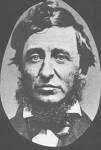What follows here is a selection of quotes of (mostly) Unitarian writers I found in that book that I thought echoed our contemporary liberal faith. Or should…
John Adams, not a Unitarian but a religious liberal and the father of John Quincy who was a Unitarian, and who wrote the oldest constitution still in effect (God bless you, Mr President) for the oldest democratic government in existence (the good Commonwealth of Massachusetts) wrote how we (he did say men, but knowing his wife, we know he really did mean all of us) “are born free and equal, and have certain natural, essential, unalienable rights.” Echoes nicely his friend and competitor Tom’s work, don’t ya think?
His wife, Abigail Adams, another religious liberal who raised a Unitarian son observed “Many of our disappointments and much of our unhappiness arise from our forming false notions of things and persons.”
John Quincy Adams called us to “Think of your forefathers. Think of your posterity.”
Susan B. Anthony called us to “Distrust people who know too much about what God wants them to do to their fellows.”
The wise Henry David Thoreau (may blessings rest upon his name) observed “The man is richest whose pleasures are cheapest.” Also, a core statement of the authentic spiritual life, “See the miraculous in the commonplace.” And like onto it, “Our life is frittered away by detail… Simplify, simplify.”
To which there’s an anonymous New England saying “Don’t talk unless you can improve the silence.” Harsh words for a preacher to hear, but…
Henry’s friend and supporter Ralph Waldo Emerson sagely observed “Money often costs too much.” He also is cited as observing “The essence of greatness is the perception that virtue is enough.” And related to that “As a man thinketh so is he, and as a man chooseth, so is he.”
Dorothea Dix counseled us to “live each day as it comes and do not borrow trouble from tomorrow. It is the dark menace of the future that makes cowards of us all.”
Nathaniel Hawthorne who personally didn’t attend church, but who was married to a Unitarian and some would say that’s pretty much the same thing, observed how “Happiness is a butterfly, which when pursued, is always just beyond your grasp, but which if you sit down quietly, may alight upon you.”
And, to conclude, Harriet Martineau, sister of the renowned English Unitarian theologian and famous visitor to Transcendentalist Boston observed rather dryly, “I believe no one attempts to praise the climate of New England.” One can’t have everything in this life…













